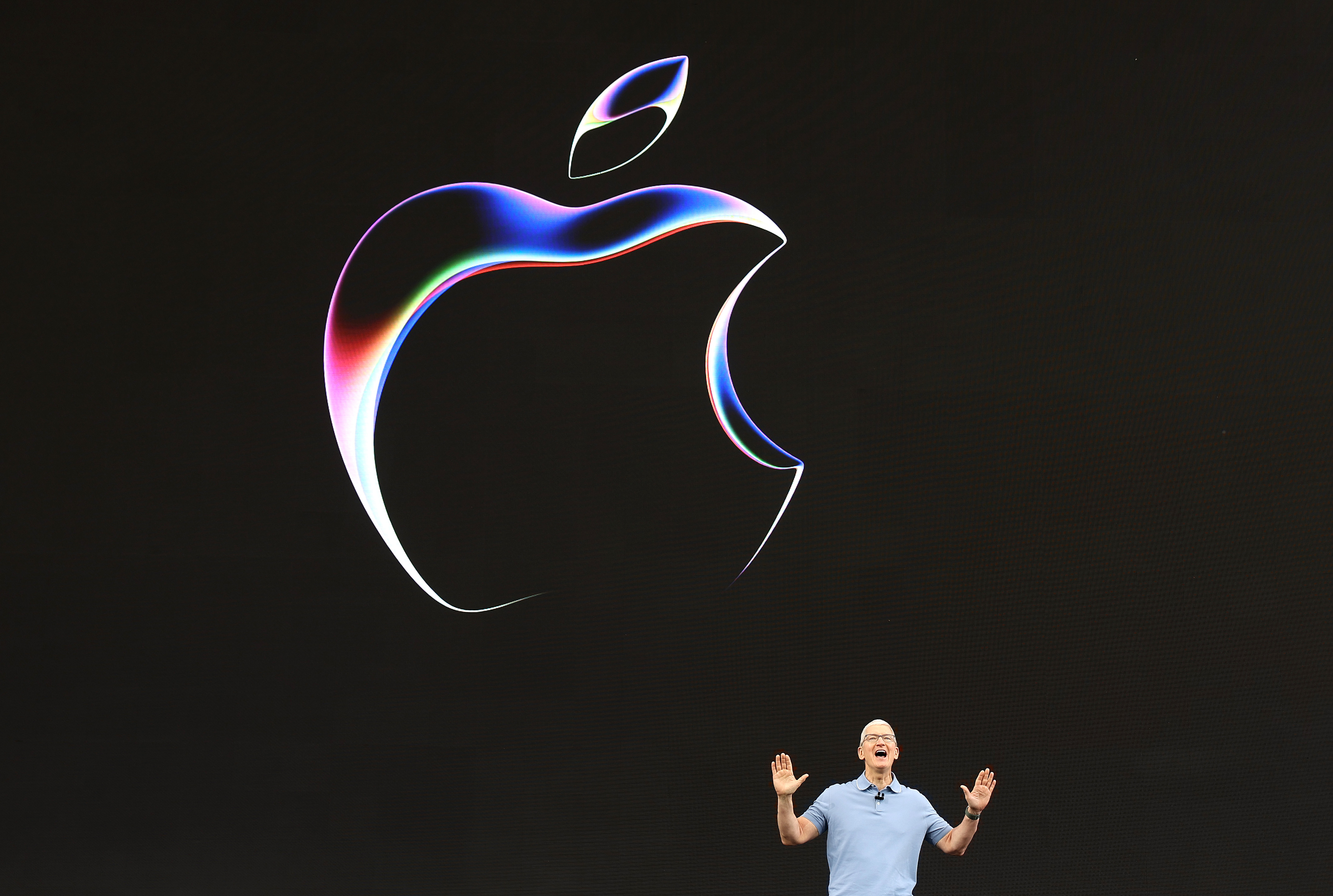Why the Apple UK hiring spree "makes sense" for the tech giant
Apple hopes its UK recruitment drive will supercharge AI development goals

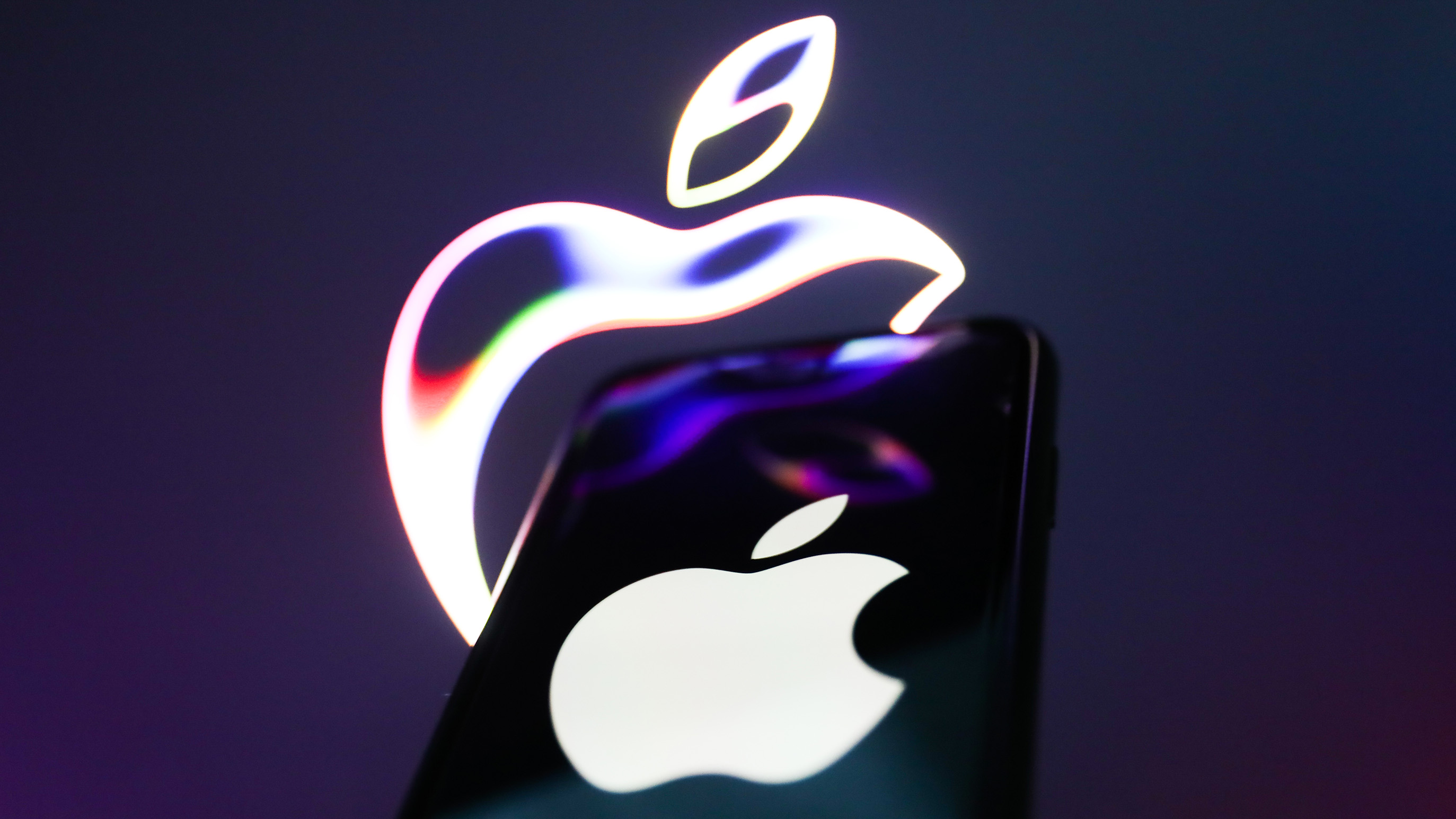
Apple has announced plans to hire more workers in the UK specifically for artificial intelligence (AI) development in a move to harness AI talent outside of California.
In a show of faith for the UK’s tech talent, chief executive Tim Cook said it is expanding its UK workforce, with specific interest in regional AI talent as it looks to double down on investment in the leading-edge technology.
Apple also committed to supporting future generations of UK tech talent through its Community Education Initiative, working in partnership with local organizations to provide free resources for coding and IT creativity.
The announcement comes shortly after Apple opened a new office in Cambridge where workers will specialize in AI and machine learning (ML).
“It’s our third largest employee population around the world from a country point of view,” said Cook, as reported by Irish News.
“It’s also the leading developer community for Europe and it’s as vibrant as ever before, it’s dynamic,” he said.
READ MORE
Bola Rotibi, chief of enterprise research at CCS Insight, told ITPro that Apple’s choice to invest more in the UK makes sense given the region’s consistent track record for nurturing tech skills and innovation.
Sign up today and you will receive a free copy of our Future Focus 2025 report - the leading guidance on AI, cybersecurity and other IT challenges as per 700+ senior executives
“The UK has, by any number of indices, a strong tech sector market,” said Rotibi.
“This is both from a point of view of skill sets — partially through a very strong university training sector, which has a very good technical skill level through degrees — but also through good regulations.
“The UK also has a very active startup community, with a number of unicorns, and the government has always had a strong investment commitment when it comes to technical innovation.”
Rotibi further noted that this commitment has been upheld by successive governments across decades, which has helped to reassure investors that UK tech investment is a safe bet.
UK Apple employees now exceed 8,000, and when supplier contracts and iOS development are taken into account, Apple said that it supports more than 550,000 jobs throughout the UK.
In addition to its Cambridge site, Apple has opened a new six-story HQ in London at Battersea Power Station, and continues to operate offices in St. Albans and Swindon.
Oxford Insights’ Government AI Readiness Index 2022 found the UK third for overall in terms of readiness to implement AI into public services, after the US and Singapore. Countries were assessed on the basis of their tech sectors, data and infrastructure, and government vision.
RELATED RESOURCE

Read why rigorous evaluation is needed if you want to build robust IT operations that can handle heavy AI and ML workloads.
Many Western European countries, including Sweden and Germany, have since fallen out of the top 10 rankings since 2019, further highlighting that Apple’s investment reflects a growing confidence in the UK’s AI market.
ChatGPT developer OpenAI announced plans to open its first international office in London back in June, citing the quality of the developers across the region.
“We are thrilled to extend our research and development footprint into London, a city globally renowned for its rich culture and exceptional talent pool,” said Diane Yoon, OpenAI’s VP of People.
“We are eager to build dynamic teams in Research, Engineering, and Go-to-Market functions, as well as other areas, to reinforce our efforts in creating and promoting safe AGI.”
At time of writing, Apple’s hiring site lists just one open position for its AI and machine learning team in the UK. This may not include positions that have already been filled, or those that are not subject to public calls for applications such as head-hunted developers.
In July, data analytics unicorn Quantexa announced plans to invest £85 million in the UK and create 170 jobs at a new London AI Innovation Center. It stated that its innovation in London would be felt by the rest of the world economy.
What is Apple’s generative AI strategy?
Apple has kept its cards close to its chest when it comes to its generative AI strategy. The firm is the last of the ‘big five’ to unveil its comprehensive strategy for the technology, and the term has been almost completely absent from its 2023 product keynotes.
Though the company uses AI throughout its product offerings, including for processes as simple as predictive text, it has not yet unveiled its own generative AI models or software enhanced by generative AI.
Its M2 Ultra chip, unveiled at Worldwide Developers Conference 2023 (WWDC23), is capable of running AI workloads locally, a feat that many graphics processing units (GPUs) are unable to match.
For all the open source and free AI options the M2 Ultra may be able to run, such as Meta’s Llama 2, Apple has given no update on whether developers will be able to use the M2 Ultra in tandem with a first-party large language model (LLM) in the near future.
In May 2023, Apple banned its staff from using ChatGPT and Microsoft’s AI pair-programmer GitHub Copilot out of fears that it could lead to proprietary data being leaked or used to train the AI models of competitors.
This cautious approach led to reports that the company could be working on internal LLMs, intended to assist developers with tasks like coding and research without putting sensitive data at risk.
Another vote of confidence in our burgeoning tech sector!Apple’s ongoing investment in brilliant British talent highlights our global credentials as both an AI and technology superpower 🇬🇧 👩💼🍏https://t.co/RAT6n9aJQxSeptember 29, 2023
Is the UK’s approach to AI competitive?
All companies seeking to reap the benefits of AI have had to keep one eye on global AI regulation. Depending on the region in which they are based, or seek to operate, developers will be held to a varying degree of responsibility over factors such as AI risk, explainability, and redress.
The legal landscape for AI is already complex, so any region that can offer a consistent pitch for its AI legislation will be more attractive to investors. The UK, US, and EU stand out in this regard as all three are in varying stages of development over their own AI legislation.
In some respects, the UK is still behind the EU when it comes to AI regulation. The EU has moved faster to move its landmark AI Act through crucial votes needed to pass it into law. In some areas, EU lawmakers have had to quickly update sections of legislation first drafted in 2021 to reflect newer trends such as the rise of chatbots.
But the EU’s risk-based approach, which puts heavy emphasis on developers anticipating potential AI harms and being more transparent on the data used to train models, is seen by some as anti-innovation.
The UK government has explicitly attempted to counter the EU’s approach to AI regulation. In its white paper on AI, the government stated that it will not seek statutory controls over AI nor new AI regulators over concerns that this could harm innovation in the field.
It is hoped that this will allow AI developers situated in the UK to develop their systems with more freedom, with the government holding companies to account on a contextual basis rather than stipulating controls for swathes of AI research such as chatbot or facial recognition.
The UK government has worked to center AI as a pillar of the UK’s economy throughout 2023, and hopes to use its November AI Safety Summit to paint itself as an international leader on AI.
“The thing that will be important for the UK is to make sure that it doesn’t slip down the world rankings for AI,” said Rotibi.
“That means providing strong, clarified commitments at both the educational level from school to university, its investments in training, technical infrastructure, and attracting investment from companies worldwide.

Rory Bathgate is Features and Multimedia Editor at ITPro, overseeing all in-depth content and case studies. He can also be found co-hosting the ITPro Podcast with Jane McCallion, swapping a keyboard for a microphone to discuss the latest learnings with thought leaders from across the tech sector.
In his free time, Rory enjoys photography, video editing, and good science fiction. After graduating from the University of Kent with a BA in English and American Literature, Rory undertook an MA in Eighteenth-Century Studies at King’s College London. He joined ITPro in 2022 as a graduate, following four years in student journalism. You can contact Rory at rory.bathgate@futurenet.com or on LinkedIn.
-
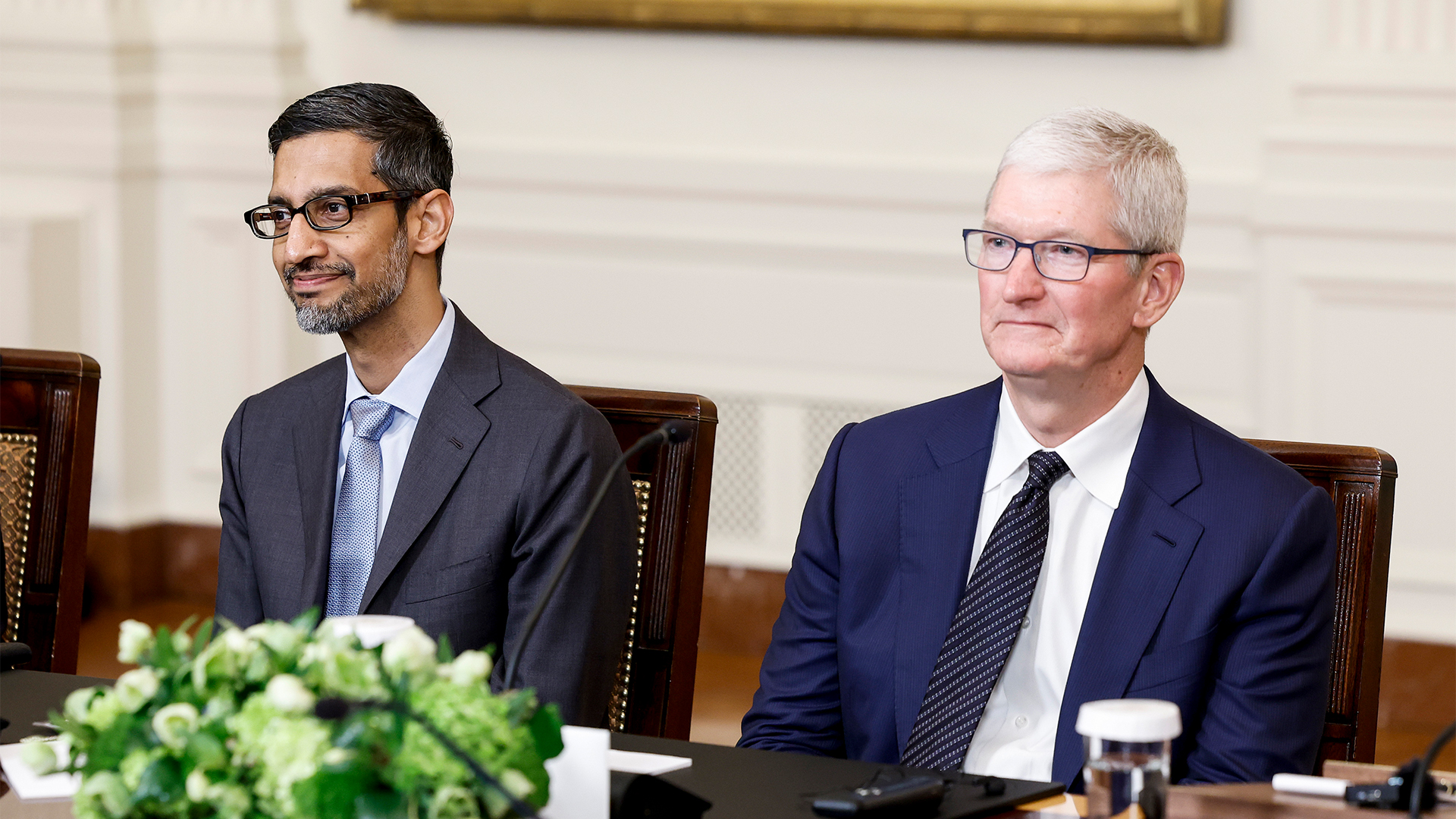 Google’s Apple deal is a major seal of approval for Gemini – and a sure sign it's beginning to pull ahead of OpenAI in the AI race
Google’s Apple deal is a major seal of approval for Gemini – and a sure sign it's beginning to pull ahead of OpenAI in the AI raceAnalysis Apple opting for Google's models to underpin Siri and Apple Intelligence is a major seal of approval for the tech giant's Gemini range – and a sure sign it's pulling ahead in the AI race.
-
 Are reasoning models fundamentally flawed?
Are reasoning models fundamentally flawed?ITPro Podcast A report from Apple has cast significant doubts on the efficacy of reasoning models, going as far as to suggest that when a problem is too complex, they simply give up
-
 ‘A complete accuracy collapse’: Apple throws cold water on the potential of AI reasoning – and it's a huge blow for the likes of OpenAI, Google, and Anthropic
‘A complete accuracy collapse’: Apple throws cold water on the potential of AI reasoning – and it's a huge blow for the likes of OpenAI, Google, and AnthropicNews Apple published a research paper on the effectiveness of AI 'reasoning' models - and it seriously rains on the parade of the world’s most prominent developers.
-
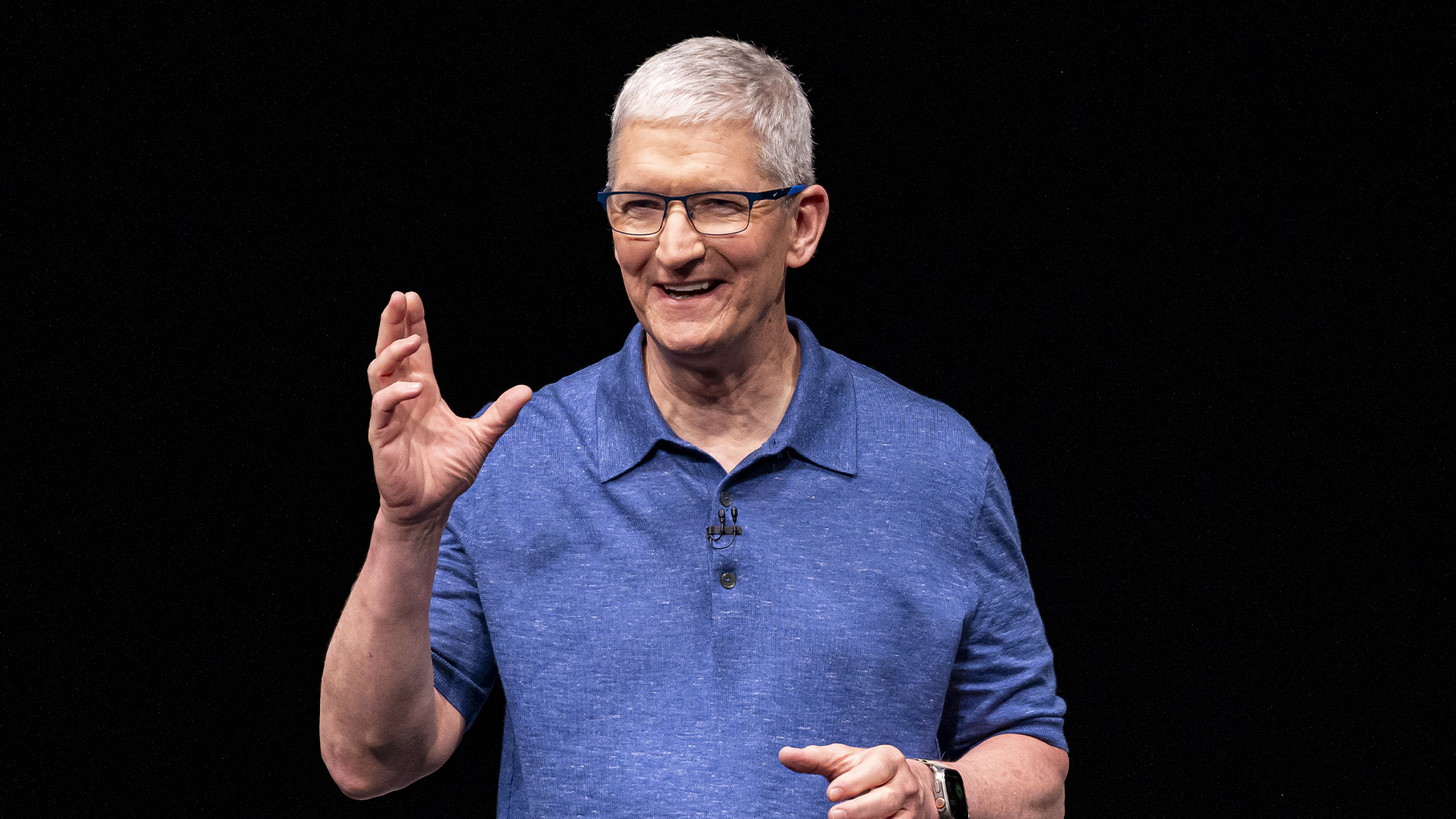 Apple: Our AI data was gathered responsibly
Apple: Our AI data was gathered responsiblyNews Apple is keen to quell concerns over the source of the data used to build its AI models
-
 Big tech’s sleeping giant has finally entered the generative AI arena
Big tech’s sleeping giant has finally entered the generative AI arenaAnalysis Apple unveiled a raft of new AI-powered tools and features at its WWDC conference this week
-
 Apple’s generative AI slumber is ending – Microsoft and Google should be on alert
Apple’s generative AI slumber is ending – Microsoft and Google should be on alertOpinion Apple’s generative AI ambitions have been highly secretive, but recent developments put the tech giant in prime position for a major push in 2024 and beyond
-
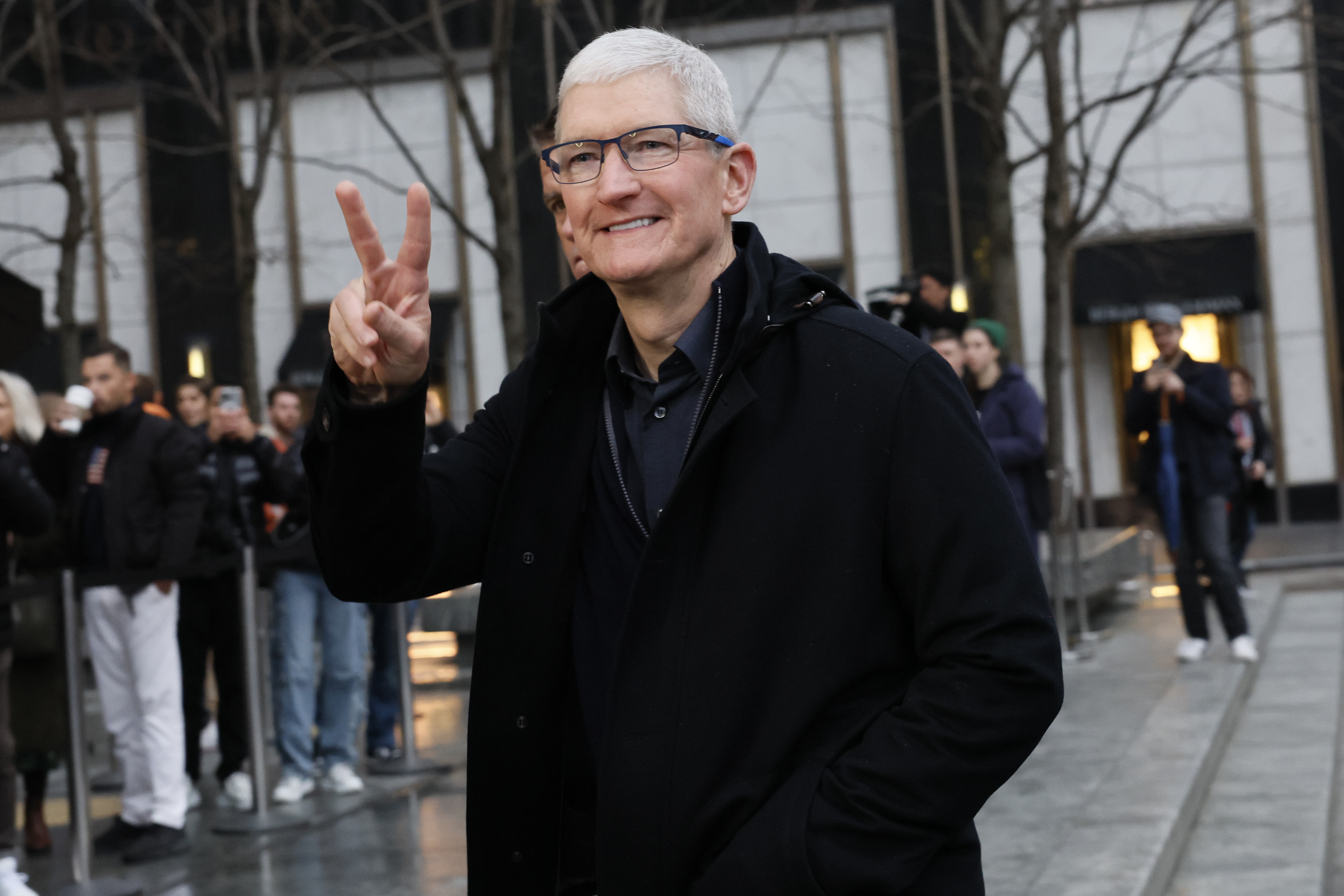 Apple is working on an AI coding tool similar to GitHub Copilot - and it could be a game changer for its generative AI ambitions
Apple is working on an AI coding tool similar to GitHub Copilot - and it could be a game changer for its generative AI ambitionsNews The AI coding tool from Apple will function in a similar way to GitHub Copilot, and would mark a major foray into the generative AI race for the tech giant
-
 Generative AI has been the secret sauce for Microsoft as its market cap surpasses Apple
Generative AI has been the secret sauce for Microsoft as its market cap surpasses AppleAnalysis Microsoft has ramped up generative AI investment over the last year and its surging share price has been a reflection of its sharpened focus on the emerging technology
